By the SMU Social Media Team
The traditional kopi (Malay for coffee) culture has a long history in Singapore. Thick, buttery and black, the familiar aroma is intimately intertwined with the everyday lives of many Singaporeans.
Then, just over 2 decades ago, Starbucks came to our little red dot, introducing local folks to the second-wave coffee culture and the world of cappuccinos, lattes, and other coffees which we couldn’t quite pronounce then, but just knew that it was fancy enough to cost more than $1.
But it wasn’t until the third-wave coffee culture hit our shores in the 2000s that we were made aware of the concept of specialty coffee. This gradually began to take our little island by storm. Café joint after café joint began popping up all around Singapore, from the central business district and shopping malls to even our neighbourhoods.
But for the avid coffee drinker like Faye Sit, you may be familiar with her predicament: She realised that coffees from specialty cafes are too expensive to drink regularly, and not always conveniently located when you need a quick fix.
“By brewing coffee at home, we were kinder to our wallets, and we could brew coffees exactly the way we want to enjoy them,” says Faye, an alumna of Singapore Management University’s (SMU) Lee Kong Chian School of Business where she did her Bachelor’s degree in Business Management. Faye and her co-founder Ernest Ting took it upon themselves to find a solution—by founding Hook Coffee, an online subscription coffee delivery service.

Whether whole beans, ground coffee, drip coffee bags or even Nespresso-compatible pods, no matter how you prefer your brew, Hook Coffee has something for you. And customers can rest assured that the coffee is all roasted locally to ensure freshness and a unique flavour profile—with whimsical flavours such as Hands Off My Nuts from Tolima, Colombia, which contains hints of honey-coated nuts and is of a medium acidity, and Kopi Sutra from West Java, Indonesia, which contains hints of black forest cake.
On top of that, Faye and her co-founder insist on a #MakeCoffeeBetter principle. Their company sources sustainably-grown and ethically-produced coffees directly from farms around the world, covering regions like Latin America, Africa and Asia. Although they pride themselves on giving farmers fair remuneration, the costs are not passed on to customers.
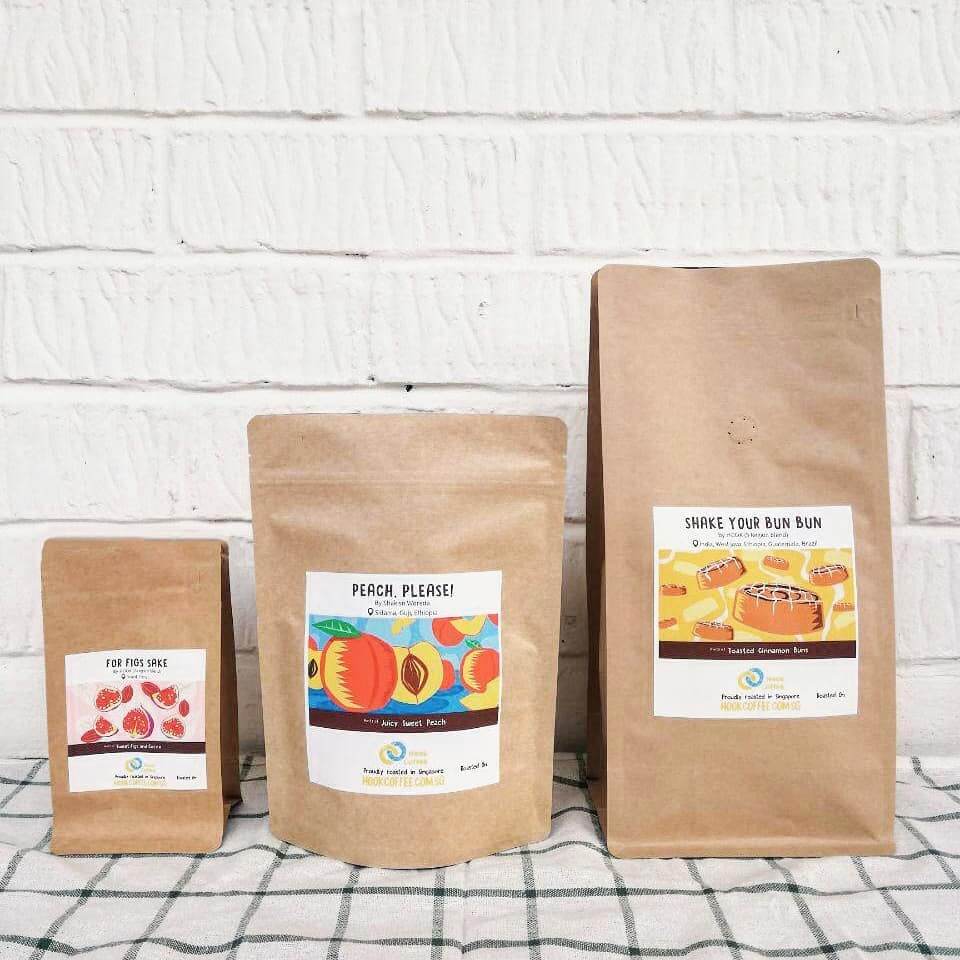
The best part is, with prices starting from just $14 per 200g bag for the subscription service (or $18 for a one-off purchase of 200g of coffee), each cup of coffee works out to less than $1!
Faye recalls how they started their business with the help of SMU IIE’s (Institute of Innovation and Entrepreneurship) incubation programme upon returning to Singapore after her study stint in London. She says: “With their support and mentorship from F&B and technology practitioners and experts, we were able to take our business plan to market within three months and even successfully pitched for the Action Community for Entrepreneurship (ACE) SPRING Grant of S$50,000.”
Through the clever use of technology, the Hook team have concocted an easy-to-use interactive recommendation engine on its website. Apart from assisting customers who don’t speak barista spiel with their decision making, it has also helped the team better analyse their customers’ buying and consumption habits.
“It has allowed us to know coffee drinkers better than any other coffee company in Singapore. When our customers rate the coffees they receive, we get to know their sensory taste profile, preferences, and lifestyle habits even better,” describes Faye.
The website also offers educational tools like step-by-step brew guides for those interested to take their coffee knowledge to the next level, but it also caters to consumers who just want a fuss-free solution like drip coffee bags.
Down the road, she hopes to eventually become a household brand across Asia, but on a more personal level, her dream is that Hook Coffee will spark conversations about socially and environmentally-conscious consumption even as consumers’ tastebuds are evolving.
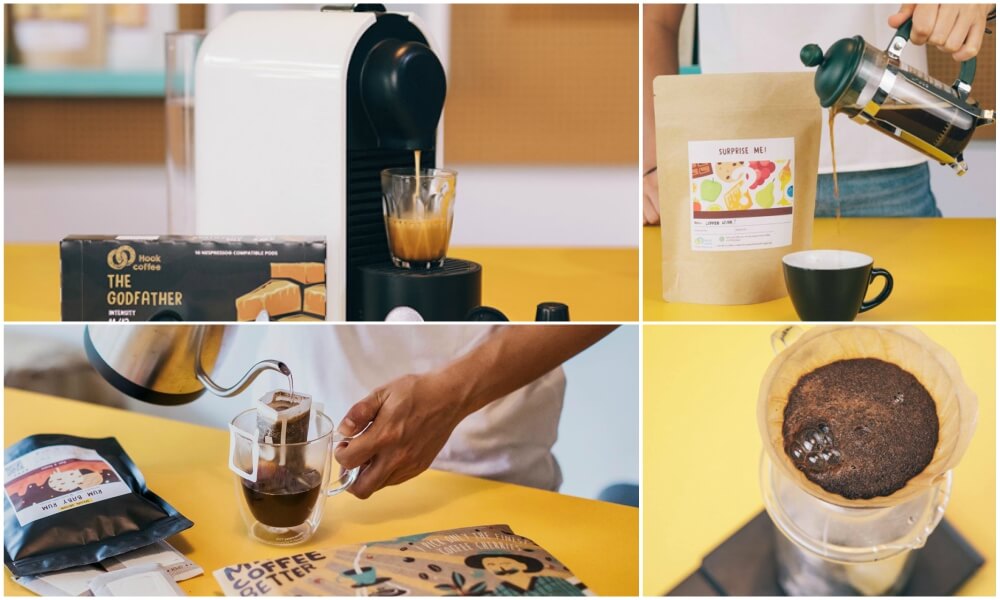
She explains: “Coffee is something that’s habitual yet it’s so underappreciated for its role in our lives every day. In this way, coffee is so much more than a commodity, it’s also a lifestyle, and I’d like to think that it’s something that brings people together as well.”
Faye believes that you don’t have to be a connoisseur or barista to appreciate and brew great coffee. In fact, “even a three-year-old can brew delicious coffee—all you need is quality and fresh-roasted coffees, and maybe a simple brew apparatus like the V60 or French Press.”
Even though many Singaporeans are still drinking coffee with milk—as a result of the second-wave coffee culture, she has observed that more and more people are slowly learning to appreciate filter coffee. “It’s the best way to really experience the nuanced natural notes and mouthfeel of each coffee from across different origins. Even coffees from the same farm can taste different throughout the year because of the ‘terroir’—soil, altitude, climate, and processing methods,” she says.
Ultimately, no matter what your taste preferences are, her simple advice is this: “A good cup of coffee should be brewed from freshly-roasted coffee.”

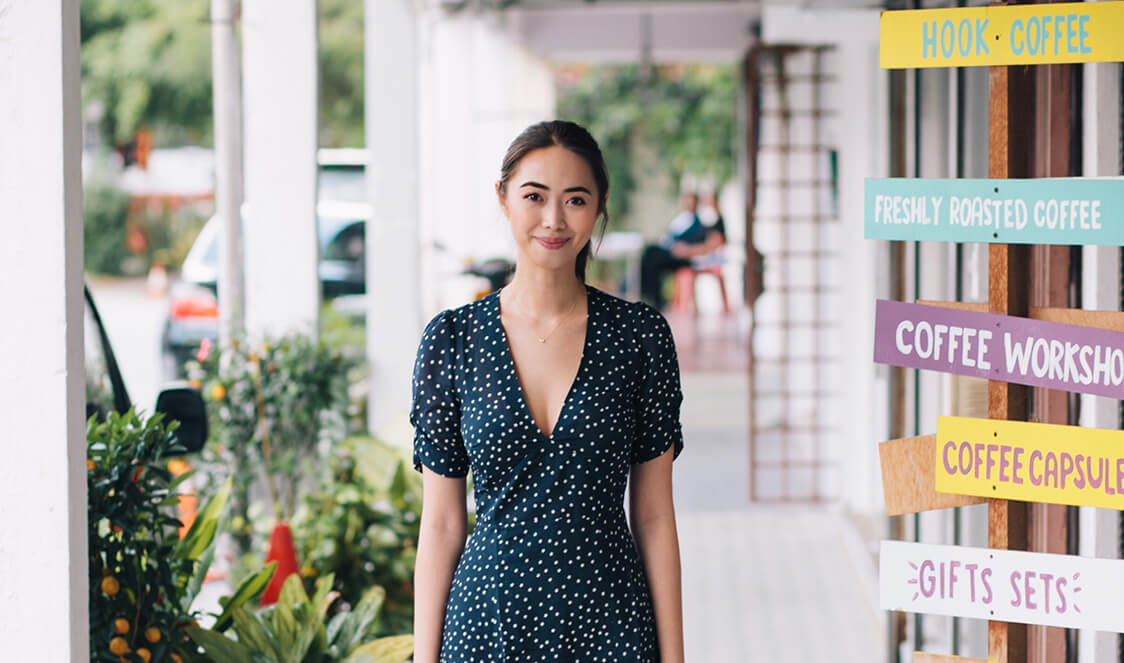



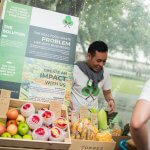
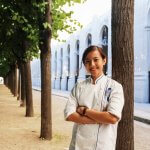





One thought on “Finding the Right Hook with Their Fresh Coffee Brew”
F&B is a simpler business for many starters. but, it is not that simple as setup and runs. especially, in the cafe business, where cost is a key manageable factor.
but, it will be a good exploration for new entrepreneurs.